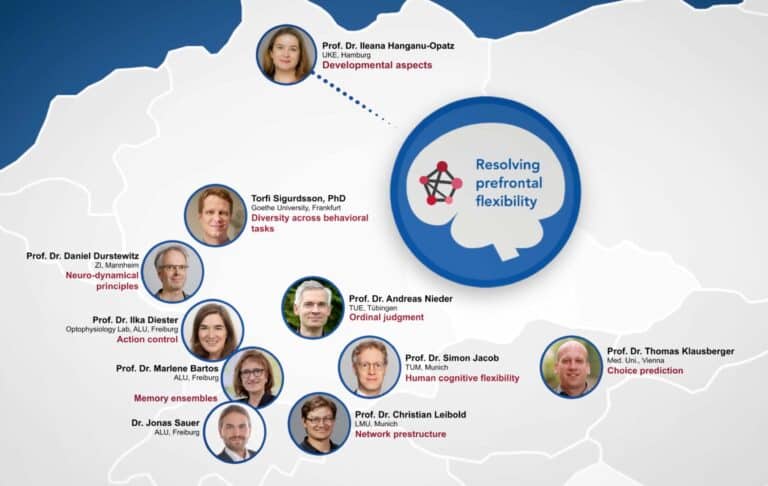Our environment is in a state of constant change. To thrive in such conditions, human behavior must also remain adaptable. We encounter diverse places and contexts, perform various tasks in quick succession, and continuously develop and adjust our strategies for action.
These adaptive abilities are not innate; they evolve with age, and their decline is at the heart of several pathologies. It is widely accepted that, in mammals, the prefrontal cortex serves as the central brain region responsible for cognitive flexibility, or the capacity to adapt one’s thinking and behavior.
Since January 2022, the German Research Foundation (DFG) has been supporting Research Unit 5159 in investigating how the prefrontal cortex encodes key aspects of cognitive flexibility, such as decision-making and working memory.
We are pleased to present the first video for the participating institutions, featuring Prof. Dr. Ileana Hanganu-Opatz (Hamburg), the consortium’s coordinator, and Prof. Dr. Ilka Diester (Freiburg), the deputy coordinator. In this video, they introduce the topic, objectives, and research program of FOR5159.
Participating Institutions of the Research Consortium:
University Medical Center Hamburg-Eppendorf (UKE), University of Hamburg
University of Frankfurt
University of Freiburg
Medical University of Vienna
University of Tübingen
Ludwig Maximilian University of Munich
Technical University of Munich
University of Frankfurt am Main
University of Mannheim

